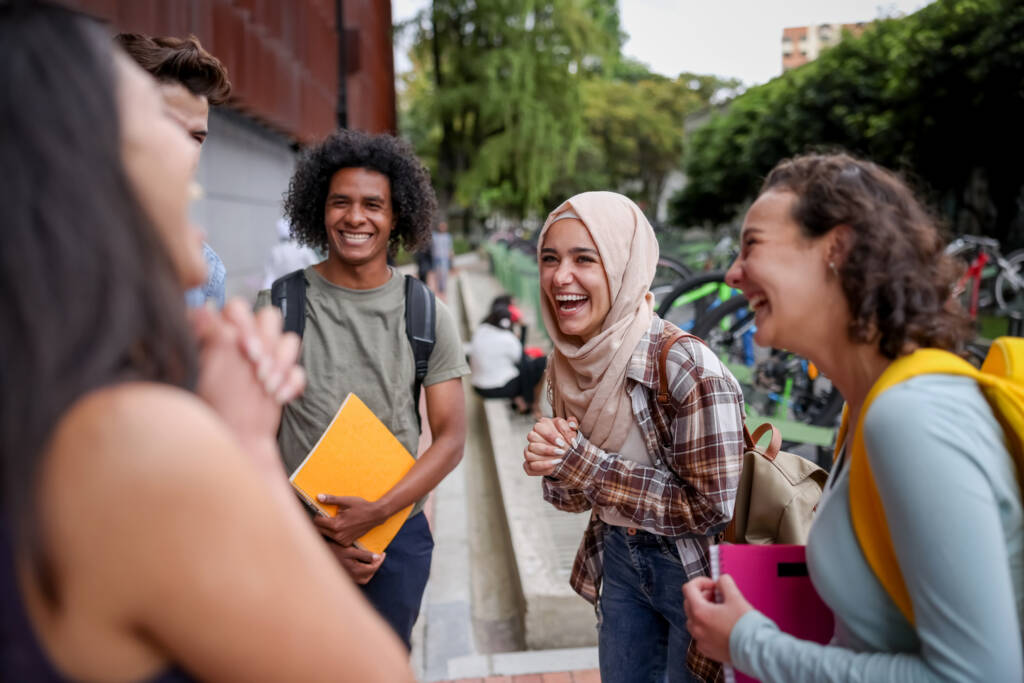
Introduction to Sociology

The world is becoming more complex. How do your beliefs, values and behavior affect the people around you and the world we live in? In this increasingly connected world, students will examine problems in our society and learn how human relationships can influence the life of the student. Exciting online video journeys to different areas of the world are also presented in the course.
Major Topics and Concepts
- Learn about the sociological approach.
- Learn what sociologists do.
- Understand the development of sociology.
- Understand the major sociological perspectives.
- Understand sociology today.
- Understand what culture is.
- Learn how culture develops in a society.
- Learn what language, norms, values, and sanctions are.
- Understand cultural variations like subcultures and countercultures.
- Learn about cultural diversity.
- Understand what socialization is and how people learn to be members of their culture.
- Examine the different socialization processes throughout the life course.
- Learn how the agents of socialization teach individuals culture.
- Examine how socialization affects the development of the self.
- Understand the role of the family, school, peer group, media, and workplace in the socialization process.
- Examine the social structure of society and how this structure affects your everyday life.
- Learn about the statuses in society that you may hold and the roles that follow from these statuses.
- Follow the development of technology in society from pre-industrial societies to postmodern ones and examine how these changes affect the social structure of societies.
- Explore social interactions between groups of people.
- Understand what deviance is and how it affects society.
- Examine the different explanations for deviance.
- Discuss how society encourages conformity and how it uses social control to discourage deviance.
- Understand the different types of crime and how society deals with crime.
- Understand what social stratification is and how it affects society.
- Learn about the three types of social stratification.
- Examine the major theories of social stratification.
- Investigate the social classes that exist in the United States and Canada.
- Learn about poverty in North America and which groups are more likely to be poor.
- Learn what race and ethnicity are.
- Investigate the characteristics of a minority group.
- Understand what prejudice, racism, and discrimination are.
- Examine the different ways that group relationships may be organized in society.
- Discuss how a minority group may respond to repression.
- Learn what gender and gender roles are.
- Examine how gender roles and expectations influence the positions and opportunities available to men and women.
- Discuss the social construction of gender.
- Investigate how the socialization process teaches gender.
- Look at gender inequality in society and how it affects men and women.
Competencies
The Development of Sociology
Students will demonstrate an understanding of the development of sociology by explaining the social sciences, summarizing notable sociologists, and evaluating sociological theory.
Culture in Society
Students will demonstrate an understanding of culture in society by explaining the development of culture in society and describing the elements of culture.
Socialization
Students will demonstrate an understanding of socialization by evaluating the socialization processes throughout life, describing the influence of human interaction, and summarizing the agents of socialization.
Social Groups
Students will demonstrate an understanding of social groups by explaining group behavior, analyzing social structure, and describing social institutions.
Deviant Behavior
Students will demonstrate an understanding of deviant behavior by explaining the effects of deviant behavior on society, describing deviant behavior theories, and analyzing strategies used to encourage social conformity.
Social Stratification
Students will demonstrate an understanding of social stratification by analyzing social systems, explaining theories of social stratification, and describing social mobility.
Inequality in Society
Students will demonstrate an understanding of inequality in society by explaining social constructions, analyzing social injustices, and summarizing group formations.
Gender in Society
Students will demonstrate an understanding of gender in society by analyzing gender roles and explaining gender socialization.
